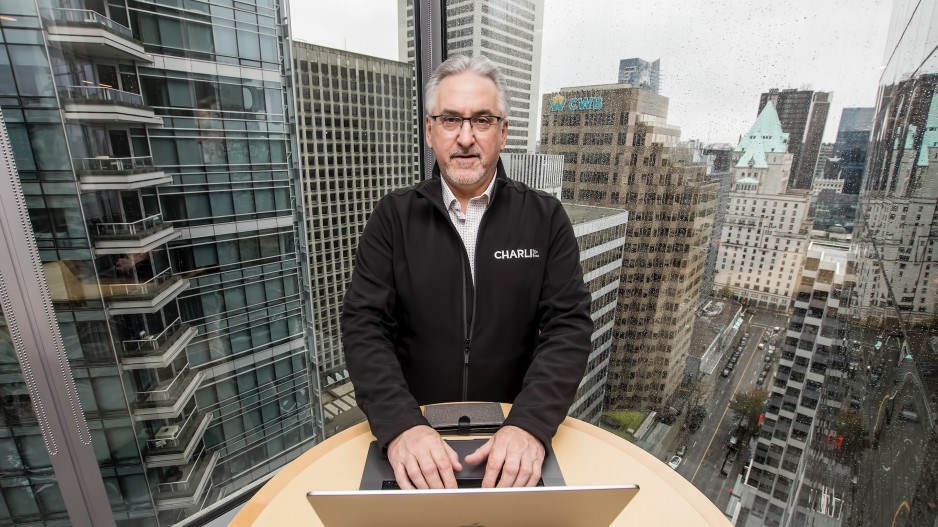Technological change happens so quickly that companies need to adapt to stay relevant.
Advances due to artificial intelligence (AI) are more powerful than previous technological evolutions, making it even more important for entrepreneurs and executives to pay attention and gain from the quantum leap in efficiency that is possible, say those in the industry.
С����Ƶ’s Minister of Jobs, Economic Development and Innovation Brenda Bailey told BIV she views adopting AI as vital for businesses.
She is looking into how best government can encourage the province’s business owners to take advantage of AI innovations.
“There are things that government can do to support businesses in moving forward with AI, and that’s certainly something I’m exploring,” Bailey said.
“Companies that embrace AI, and find solutions with AI, are going to be ahead of the curve, and those that don’t will be left behind. I’m very much thinking about that.”
She said that she has had discussions with people in Vancouver’s AI sector, such as David Seymour, who is vice-president and general manager for Microsoft Corp.’s (Nasdaq:MSFT) operations in Vancouver.
“You could hire one software programmer in a company, and have them work for two weeks, and they will be able to compile, using generative AI, all of your documentation, every PDF, all of your sales figures – like every single document you have in the history of your company, and make it searchable with generative AI. That could really change your business analytics,” Bailey said, relaying information gleaned from her discussions.
Microsoft is a main player in the emerging world of developing integrated platforms and software to help executives who want to integrate AI into their ventures.
Alphabet Inc.’s (Nasdaq:GOOG) Google is another.
“We’re the only company that offers a full set of services and technology stack for AI,” Sam Sebastian, Google’s Canadian country manager for cloud services, told BIV.
“That’s from high-performance AI infrastructure, like chips, or tensor processing units – the technology that the largest AI startups run on – to our own foundational large language models.”
Meta Platforms Inc. (Nasdaq:META) is a third technology giant that is focusing on AI research. Its CEO Mark Zuckerberg told analysts on the company's Oct. 25 earnings call that "AI will be our biggest investment area in 2024."
Executives at С����Ƶ credit unions are aware of AI’s power. Ventures such as Vancity, Gulf and Fraser, Bulkley Valley Credit Union and others are using Vancouver-based Judi.ai’s technology to help determine how much credit or loan value to provide various small businesses, Judi.ai CEO Gord Baizley told BIV.
Small business owners seeking loans go to credit unions and provide financial information along with bank statements to prove their credit worthiness.
“When a bank statement comes in, it’s a bit of a bowl of spaghetti,” Baizley said. “We use our AI-driven models to say, ‘OK, let’s transform that into something that’s usable.’”
Vancity’s director of small business Mike Matsuo told BIV that his credit union started working with Judi.ai as a pilot program in 2017.
“The technology has continued to be used in our small business division,” he said. “What the technology creates is a more efficient small-business loan application process. The AI program significantly decreases the turn-around time on a loan decision. We can approve a deal within hours with Judi.ai, whereas our previous process took a minimum of a week and up to three weeks.”
Vancouver’s Charli.AI similarly has banking clients for its application, which has a range of business and human-resources functions.
The software, for example, can delve into complex tax calculations that arise when executives work in multiple jurisdictions, or have equity stakes in companies in multiple jurisdictions.
“You have to understand the jurisdictions, and the legal requirements around them,” Charli.AI CEO Kevin Collins told BIV. “That means reading through a lot of legalese to understand the implications for both employees, as well as the companies they work with. That fully gets automated with our Charli.AI.”
His 40-employee company’s software can also be used to calculate stock options for executives and determine when those people can vest their options.
Companies have long used basic software to do those calculations, but Collins said his AI application makes the whole process more automated because it eliminates the need for companies to have workers input data.
He said Charli.AI has about a dozen clients but he did not want to name them without permission. One of those clients is one of Canada’s largest banks, he said.
Rob Goehring, CEO at Wisr AI, has also seen an uptick in business at his venture, which partners with third-party cybersecurity firms that have multinational clients.

Rob Goehring, who is the founding chair of С����Ƶ Tech’s AI C-Council, has watched a flurry of interest in a range of С����Ƶ companies for which AI is an integral part of their products | Rob Kruyt
Wisr AI’s specialty as being able to detect “where the bad guys are going next,” said Goehring, who is the founding chair of С����Ƶ Tech’s AI C-Council, which includes C-suite executives at growth- stage AI companies.
Other С����Ƶ companies in the niche of helping clients adapt AI innovations include:
• This.fish, which helps seafood processors automate workflows, among other tasks;
• Browse.ai, which helps companies extract and monitor data from any website and convert it into a spreadsheet; and
• Intelligent Project Solutions, which provides AI solutions to help clients’ customers’ engineering and digital transformation needs – particularly in the oil, gas and chemical products industries.
Goehring said that since late last year, when OpenAI received widespread media coverage for launching a free preview of its AI chatbot ChatGPT, there has been a .
“We’re seeing – for the most part, all the AI companies are seeing – really good growth and adoption,” he said.
While AI undoubtedly can improve efficiency, there remains a wariness about the technology in the general population and among small-business owners.
Scotiabank (TSX:BNS) this month released its annual Path to Impact 2023 report, which showed that . Only 44 per cent of respondents said they were interested in adopting AI in their ventures.
Worse is that С����Ƶ small-business owners surveyed were less interested in AI than counterparts in every other province. Only 39 per cent of С����Ƶ small-business owners said that they wanted to adopt AI innovations, according to the Scotiabank survey.
Those business owners were not alone in wanting to tread lightly into the new AI world. Canadians are not sure how much of an opportunity AI provides.
Most fear it will take their jobs.
A found 77 per cent of Canadians said they feared that AI would take over jobs now performed by humans – a figure that rises to 80 per cent among those in the lowest household income bracket.





